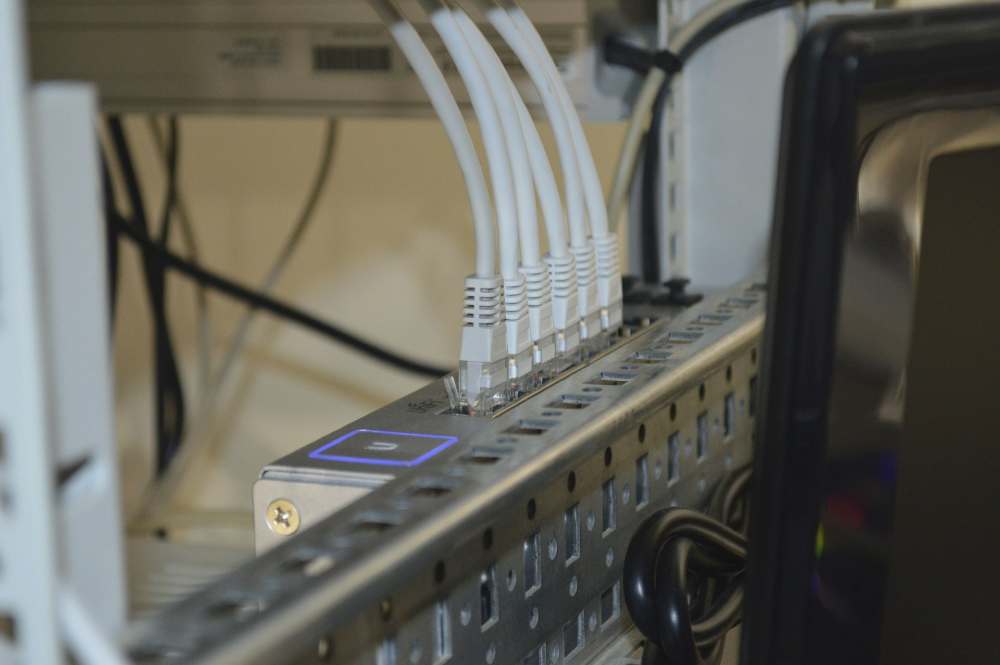If you’re running a business, your Internet connection is as essential as the office coffee machine (maybe even more so). When it comes to choosing the right type of connection, you’ve probably come across the debate between fibre networks and broadband. Both have their merits, but the decision ultimately depends on what your business needs and how you plan to use the Internet. So, which one is better for your office?
What is Broadband?
Before diving into fibre, let’s talk about broadband. Broadband is essentially a blanket term for high-speed Internet, usually delivered through copper telephone lines (ADSL) or coaxial cables. It’s the standard option that many homes and businesses have been using for years.
Broadband in a nutshell:
- Availability – Widely available in most areas, especially rural regions.
- Speeds – Vary depending on the type (ADSL, cable, satellite), with download speeds ranging from 10 Mbps to around 200 Mbps for most connections.
- Cost – Typically more affordable than fibre.
- Reliability – Prone to interference, slower during peak times, and affected by distance from the exchange or cabinet.
Broadband has been the go-to for years, but it does come with a few compromises, especially for businesses that need fast, reliable Internet without interruptions.
Fibre Networks: The New Standard?
Fibre Internet, on the other hand, is delivered through fibre-optic cables, which use light signals to transmit data. This method allows for much faster speeds and a more stable connection. Fibre networks from the likes of Vorboss have quickly become the gold standard for modern businesses, especially those relying on cloud services, large file transfers, or video conferencing.
Key benefits of fibre:
- Speed – Far faster than broadband, offering speeds up to 1 Gbps (or even higher, depending on the plan).
- Reliability – Less affected by peak usage times or distance from the exchange.
- Symmetrical speeds – Upload and download speeds are often the same, which is crucial for businesses that need to send large files as much as they receive them.
- Future-proof – Fibre infrastructure is better suited for future upgrades, making it a long-term solution.
The speed and stability of fibre make it an excellent choice for offices that rely heavily on fast, reliable Internet for day-to-day operations. But does that mean it’s always the best option?
How Does Fibre Stack Up Against Broadband for Your Office?
When comparing fibre and broadband, it’s essential to consider your business’s specific needs. Are you a small office that mostly uses the Internet for emails and light web browsing? Or do you have a larger team, all working on cloud-based applications, downloading large files, and jumping on video calls?
Let’s compare fibre and broadband based on the factors that really matter for office use:
1. Speed
Fibre wins here, hands down. If your office relies on fast Internet to run cloud-based tools, transfer large files, or handle multiple video calls simultaneously, fibre’s speeds will make a noticeable difference. Broadband, while capable, tends to struggle when multiple users are online or when there’s high demand during peak times. Fibre’s consistent speed ensures your team stays productive, without waiting for downloads or uploads to finish.
2. Reliability
If your business can’t afford downtime or slow connections, fibre is a safer bet. Fibre networks are less prone to interference compared to broadband, meaning they maintain consistent performance even during peak hours. This is especially important for companies using VoIP (Internet phone systems) or video conferencing, where interruptions can be costly.
3. Availability
Broadband is still more widely available, especially in rural or less connected areas. If your office is located in a major city or business park, fibre will likely be an option, but if you’re based in a more remote area, broadband might be your only choice for now.
4. Cost
Broadband generally costs less upfront. If your business doesn’t need ultra-high speeds, broadband might be a cost-effective solution. Fibre, while more expensive, offers better long-term value, especially if your office has heavy Internet use. Consider it an investment in productivity.
5. Security
While both fibre and broadband connections can be secure, fibre tends to have an edge. Because fibre-optic cables are less prone to tampering than copper lines, they can offer better security against data breaches. This is particularly relevant if your office handles sensitive information or needs to comply with strict data protection regulations.
Is Fibre Worth It for Your Business?
This all comes down to how your office uses the Internet. If you’re a small business with light Internet usage – checking emails, browsing the web, and occasionally downloading files – broadband might suit your needs just fine. It’s affordable and available almost everywhere.
However, if your office requires faster speeds and greater reliability (especially for cloud-based work, video calls, or transferring large files), investing in fibre could save you a lot of headaches in the long run. Plus, it’s more future-proof, meaning your business won’t have to upgrade again anytime soon.
Choosing the Right Connection for Your Office
Here’s a simple checklist to help you decide:
- What’s your Internet usage like?
Light use (emails, browsing) = Broadband is likely enough.
Heavy use (cloud tools, video calls) = Fibre is worth the investment. - How many people will be using the Internet?
Small team = Broadband should suffice.
Large team or multiple devices = Fibre’s stability will be appreciated. - Is downtime costly for your business?
If slow or unreliable Internet could impact your operations, fibre’s reliability is hard to beat. - Is fibre available in your area?
Not all locations have access to fibre yet. Check availability before making your decision. - How long-term are your plans?
If you plan to expand your team or move towards more online collaboration, fibre is the more future-proof choice.
The Right Connection is a Business Essential
In the end, the choice between fibre and broadband comes down to how critical a fast, reliable Internet connection is for your office. Broadband might be cheaper and easier to get, but fibre’s superior speed, reliability, and future-proof nature make it the smart choice for many growing businesses.
Whether you’re sticking with broadband or upgrading to fibre, make sure your connection can keep up with your team’s needs and the demands of your work. The right Internet connection can make a huge difference in productivity, collaboration, and the overall efficiency of your office.




